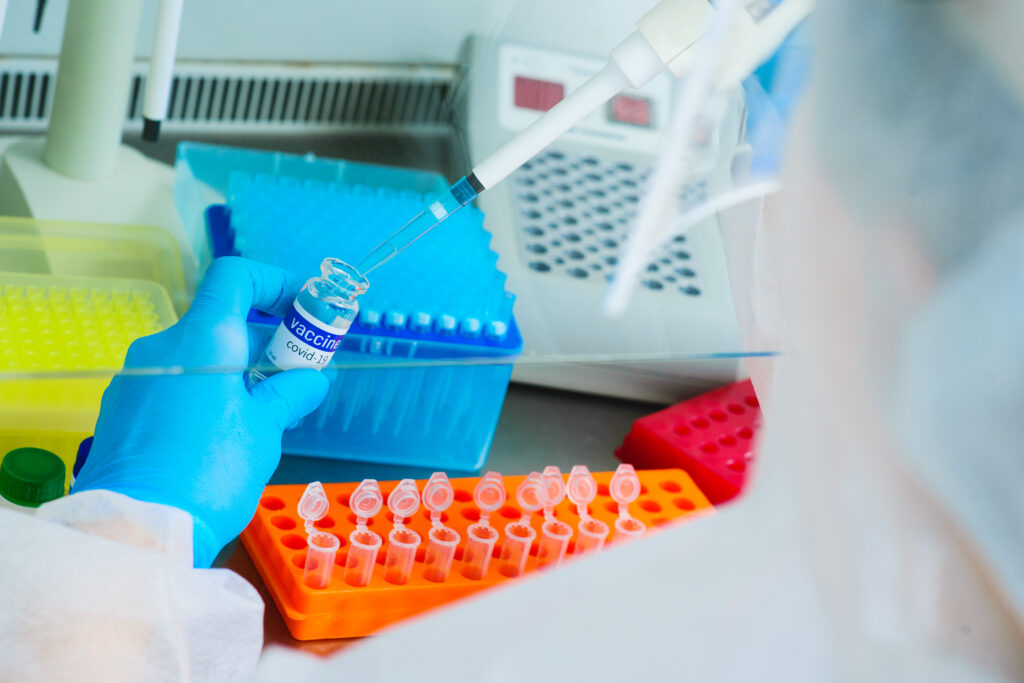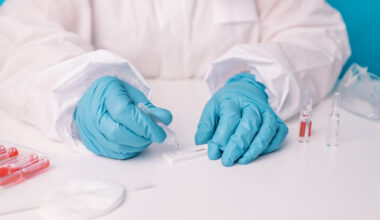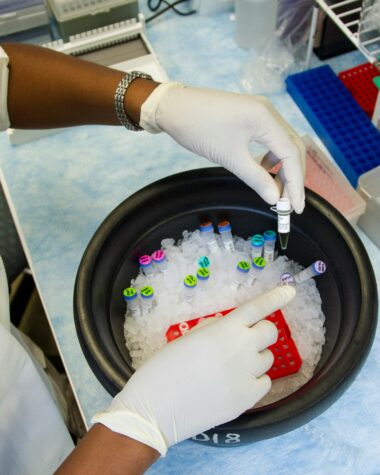Twist Bioscience (NASDAQ:TWST) is a synthetic biology and biotechnology company built on the vision of transforming how DNA is manufactured, engineered, and applied across multiple industries. Founded on the premise that a scalable, silicon-based DNA synthesis platform could dramatically accelerate innovation, Twist developed a proprietary technology that enables high-throughput, highly accurate, and cost-efficient production of synthetic DNA. This technological foundation positioned the company at the center of key scientific markets, including next-generation sequencing (NGS), drug discovery, biologics development, industrial chemical engineering, data storage research, and diagnostics. Over the years, Twist has expanded its product offerings from basic gene fragments to a broad suite of complex DNA libraries, NGS tools, antibody discovery solutions, and customized synthetic constructs designed to support both academic and commercial customers. This evolution reflects its mission to provide researchers and biopharma organizations with the high-quality DNA they need to accelerate scientific breakthroughs while reducing development time and cost.
The company’s background is rooted in both engineering and biology, leveraging semiconductor manufacturing concepts to rewrite what is possible in DNA production. Twist’s ability to synthesize millions of oligonucleotides simultaneously on a silicon chip created a significant competitive advantage over traditional column-based synthesis methods. This platform innovation enabled researchers to perform large-scale screening experiments, design extensive variant libraries, and explore biological questions with a level of precision and throughput previously unattainable. As synthetic biology grew into a critical pillar of modern biotechnology, Twist expanded its reach by launching targeted NGS enrichment panels, antibody discovery services, high-diversity oligo pools, and custom expression optimization tools. These offerings increased the company’s footprint across drug development, agricultural genomics, microbial engineering, and molecular diagnostics, strengthening its position as a foundational supplier in the synthetic biology ecosystem.
Twist’s history is defined not only by scientific innovation but also by strategic market expansion and responsiveness to emerging customer needs. The rise of AI-enabled drug discovery created new opportunities for advanced DNA libraries, prompting Twist to refine its products for high-throughput optimization and protein engineering workflows. The company also pursued opportunities in oncology and liquid biopsy markets by integrating its DNA synthesis expertise into minimal residual disease (MRD) detection tools, positioning itself for future growth at the intersection of genomics and diagnostics. In parallel, Twist scaled its operations globally, serving biopharma, diagnostic companies, academic institutions, and government agencies across North America, Europe, and Asia-Pacific. Continued investment in manufacturing capacity, product innovation, and data-driven customer solutions helped the company maintain its reputation for quality while expanding its serviceable market.
As Twist enters its next phase, its background reflects a trajectory shaped by technological breakthroughs, strategic diversification, and a commitment to improving the reliability, accessibility, and scale of synthetic DNA. The company’s DNA synthesis and NGS applications businesses now sit at the core of its operations, complemented by a biopharma segment focused on antibody discovery and therapeutic partnership opportunities. With a portfolio built around enabling faster research cycles, deeper genomic understanding, and more efficient drug development, Twist Bioscience continues to evolve as a key enabler of innovation in synthetic biology and precision medicine. Its journey from a disruptive DNA synthesis startup to a multinational biotech supplier underscores the company’s role in shaping the modern biotechnology landscape and supporting the scientific industries that rely on high-quality synthetic DNA to drive discovery forward.
Revenue Growth Masks Deep Structural Risks
Twist Bioscience (NASDAQ:TWST) has positioned itself as a high-growth innovator in synthetic DNA, next-generation sequencing tools, and biopharma discovery platforms. However, beneath the surface of its headline numbers—record quarterly revenue of $99 million, fiscal 2025 revenue of $376.6 million, and an 11-quarter growth streak—Twist Bioscience (NASDAQ: TWST) continues to exhibit signs of fundamental fragility. Although management repeatedly emphasizes expanding market share, proprietary technology, and strong demand from AI-enabled drug discovery, the company remains structurally unprofitable with a widening gap between operational scale and sustainable profitability. When viewed through a bearish lens, the combination of flat operating expenses, high cash burn, continued EBITDA losses, and ongoing customer-transition challenges reveals that Twist Bioscience may be far more vulnerable than its growth narrative suggests.

CHECK THIS OUT: Corcept (CORT) Skyrockets 1,534% in 10 Years and Immuneering (IMRX) Reports 86% 9-Month Survival in Pancreatic Cancer.
Revenue Growth Relies Heavily on External Cycles and Not on Durable, High-Margin Demand
The bullish storyline highlights 17% year-over-year quarterly growth and 20% annual growth, but these numbers obscure underlying issues in revenue quality. A significant portion of Twist’s growth stems from cyclical forces such as academic spending stability, AI-discovery demand from well-funded biotech companies, and a large diagnostics customer still transitioning between research and commercial phases. Management openly acknowledges that this customer transition is creating an “air pocket” that will depress Q1 FY2026 revenue, with Laponis noting that recovery is expected only in Q2. For a company whose forward guidance depends on 13% to 15.5% total revenue growth in FY2026, any prolonged weakness in NGS applications or delays in customer recovery could derail the entire year. TWST’s revenue base appears uneven, exposed to volatile customer budgets, and dependent on small clusters of large buyers rather than broad, stable demand.
Gross Margin Stability Is Not Guaranteed and May Conceal Future Compression Risks
Twist reported a quarterly gross margin of 51.3%, but scrutiny reveals fragility. The previous quarter saw a margin of 53.4%, highlighting sequential erosion that analysts quickly flagged. Laponis admitted that margins will face noise due to customer mix fluctuations, competitive pricing shifts, and pressure from transitioning accounts. While management insists that margins will exceed 52% in FY2026, the bearish view recognizes that synthetic biology and NGS markets are competitive and commoditizing. If Twist pushes for higher volume in lower-margin segments or faces increased competition from companies with cheaper production capabilities, margin expansion may not only stall—it could contract meaningfully. Historically, TWST has struggled with cost discipline, and any margin disappointment poses serious risks given that EBITDA breakeven is projected only at the end of FY2026.
EBITDA Losses Continue Despite Growing Revenue, Highlighting Structural Inefficiency
Twist posted an adjusted EBITDA loss of $7.8 million for the quarter, an improvement from the previous year but still an ongoing sign that the core business model has not proven scalable or self-funding. Operating expenses totaled $80.8 million for the quarter and $327.3 million for the year, remaining flat but still substantial relative to revenue. Twist’s fiscal 2025 performance indicates that even as the company grows revenue to nearly $100 million per quarter, profitability remains elusive. The bearish thesis argues that TWST might be reaching the limits of revenue-only growth, and without dramatic cost controls or pricing power, achieving sustained profitability may take years longer than projected. Investors banking on EBITDA breakeven by Q4 FY2026 are assuming flawless execution in a business model that has historically struggled to achieve operational leverage.
Customer Concentration and Transition Volatility Threaten Revenue Consistency
One of the most underappreciated bearish risks for Twist Bioscience is the extent to which a few customers drive large portions of revenue, particularly in NGS applications. Analysts repeatedly pressed management on the impact of a top diagnostics customer transitioning from research to commercial operations. Laponis admitted that the Q4 slowdown is rolling into Q1, creating a period of suppressed growth. This kind of exposure places TWST at risk of sharp revenue swings tied to individual customer cycles rather than diversified demand. The bearish case emphasizes that reliance on a handful of large accounts makes Twist vulnerable to elongated customer transitions, competitive shifts, or budget reallocations—any of which could hammer quarterly results.
MRD Express: A Promising Idea With Big Unanswered Questions
President and COO Patrick Finn revealed that the MRD Express product will enter commercial release in early 2026, offering a 12-hour turnaround for cancer diagnostics. However, the product’s revenue contribution remains highly uncertain. Finn confirmed that “pricing has not been set,” and management stated that MRD Express will contribute only “1 to 2 points of growth” during fiscal 2026, far below what would be necessary to materially shift the company’s financial trajectory. The bearish interpretation sees MRD Express as a potentially capital-intensive initiative with unclear profitability, uncertain adoption timelines, and the risk of becoming a low-margin or slow-ramping offering. Without established pricing or confirmed customer commitments, MRD Express may become another long-term experiment rather than a near-term catalyst.
AI-Driven Drug Discovery Demand Is Not as Durable as Management Suggests
Twist frequently highlights the $25 million increase in orders from AI-enabled drug discovery customers. However, this market segment remains tied to venture funding cycles and biotech capital markets—both of which are volatile. If funding tightens or AI drug-discovery startups fail to achieve milestone progress, Twist may see a reversal of this demand spike. The bearish thesis cautions that AI-discovery enthusiasm may be masking underlying fragility in SynBio and NGS revenue, making revenue less predictable in the event of a macro pullback.
2026 Guidance Relies on Perfect Execution and Minimal Disruption
Twist’s guidance forecasts $425 million to $435 million in revenue for FY2026 and gross margins above 52%. The bearish view sees several red flags: DNA Synthesis and Protein Solutions must grow 15% to 18%, NGS Applications must grow up to 13.5%, and margin expansion must remain intact—all during a year where a major customer transition dampens Q1 performance. Additionally, the shift to new segment classifications (DNA synthesis and protein solutions; NGS applications) introduces reporting complexity that may obscure real performance variations. If any part of the plan underperforms, particularly in NGS, the company’s breakeven target may slip further into the future.
Flat Operating Expenses Hide the Risk of Future Spending Spikes
Although Twist reports flat operating expenses for three consecutive years, the company also acknowledges investing aggressively in innovation, capacity, and new product categories. These investments could spill over into higher costs ahead of revenue contributions, creating timing mismatches that worsen EBITDA losses. The bearish outlook warns that TWST may be suppressing visible expense growth now, only to face upward cost pressures as MRD Express, expanded protein solutions, and global customer support infrastructures go live.
Sentiment Shifts Show Analysts Growing More Skeptical
Compared to earlier quarters where margin expansion and operational discipline were the focal points, Q4 analyst questions concentrated on customer transitions, near-term pacing, and sustainability of growth. The shift signals rising buy-side concern that revenue quality—not just revenue growth—is becoming a critical issue. Management’s frequent use of forward-leaning optimism, such as “we expect,” “we see a path,” and “we are extremely excited,” underscores reliance on future catalysts rather than present fundamentals. Investors must consider that sentiment degradation often precedes valuation compression in high-multiple growth stocks.
Conclusion: Twist Bioscience Faces a High-Risk Path Despite Strong Top-Line Growth
While Twist Bioscience (NASDAQ: TWST) continues to showcase revenue growth, improved gross margins, and expanding product lines, the underlying risk profile remains significant. Dependence on volatile customer segments, unproven long-term profitability, unpredictable MRD Express ramp, gross margin sensitivity, and reliance on perfect execution in FY2026 create a bearish investment landscape. TWST remains a promising but fundamentally fragile synthetic biology company, and until it proves durable profitability and reduced customer concentration, the downside risks may outweigh near-term growth appeal.
READ ALSO: Tiziana (TLSA) Surges 143% in 2025 and Immuneering (IMRX) Reports 86% 9-Month Survival in Pancreatic Cancer.








